A2 Hosting, an industry leader is known for providing affordable, fast and reliable web hosting services to its customers all over the world. Whether you're an IT Pro or Average Joe, it does not matter, this guide will go through how almost anyone can easily configure and install an SSL Certificate on your website and check its installation on your server.
- Step 1: Generating a CSR and Private Key
- Step 2: Order and Configure the SSL Certificate
- Step 3: Install the SSL Certificate on your A2 Hosting Server via cPanel
- Step 4: Check the SSL is working
Step 1. Generating a CSR and Private Key
1: Login to your A2 Hosting Manager and navigate to the client area.
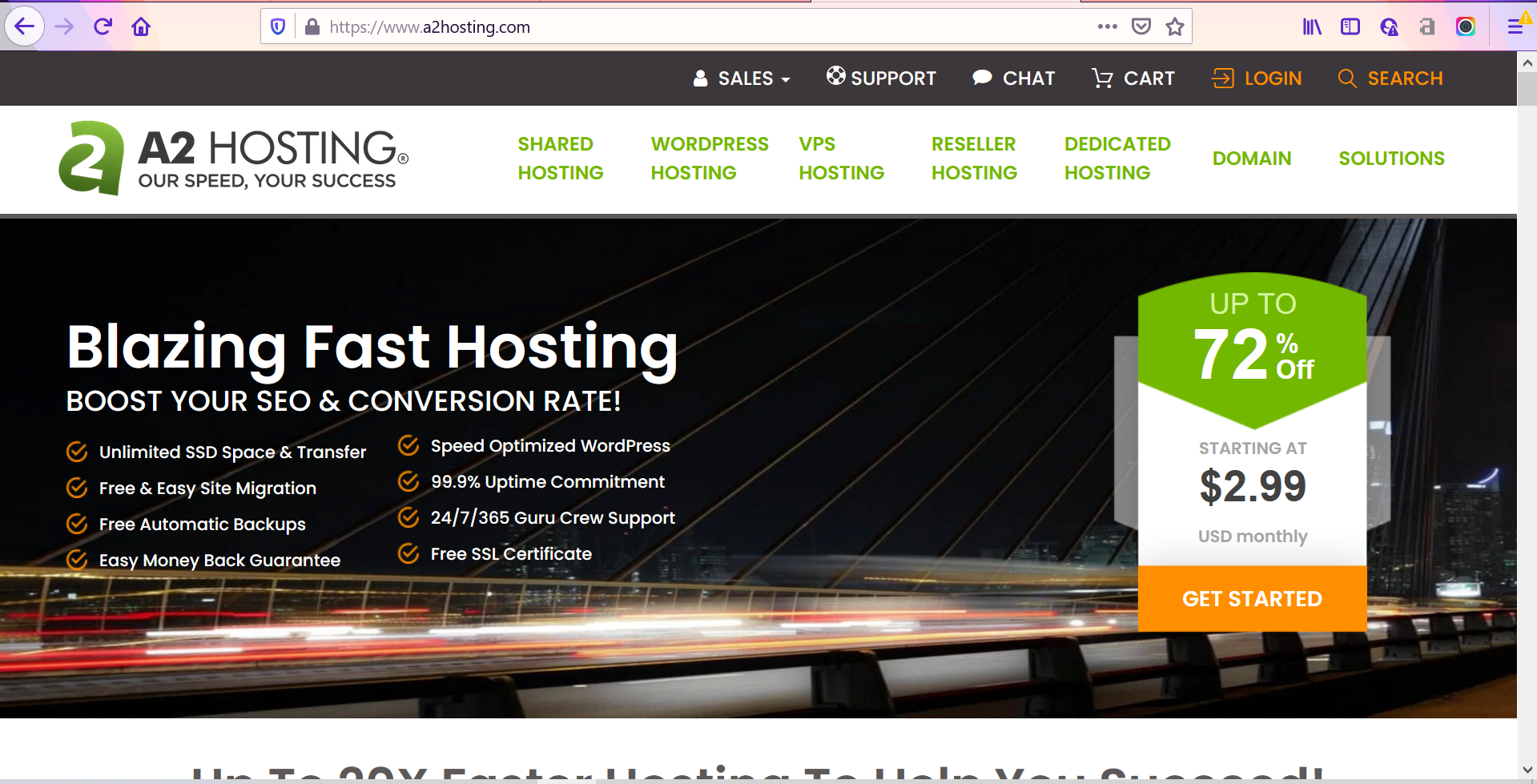
2: Once you've securely logged in, you can now scroll down and click on cPanel Login
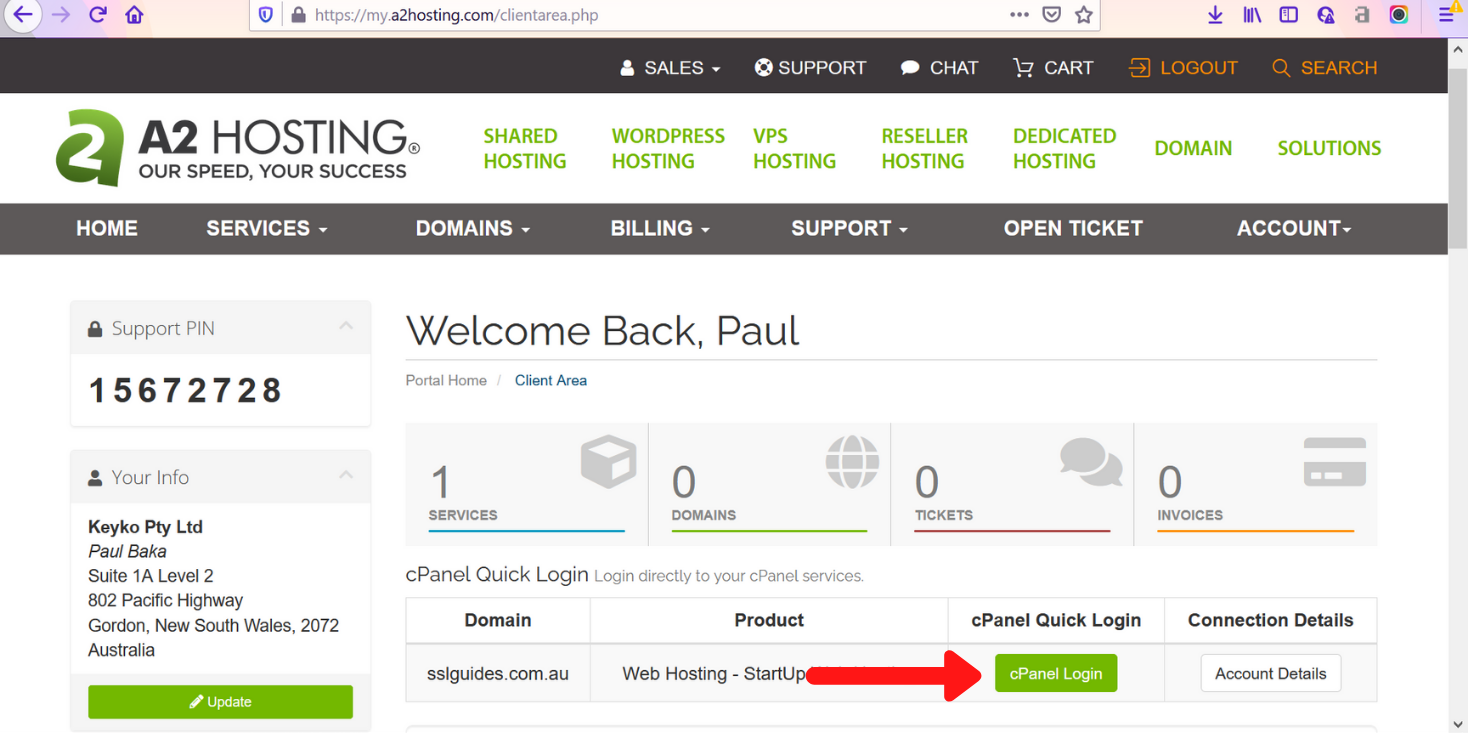
3: Once you're on the cPanel Dashboard, you need to access the SSL/TLS module within cPanel. This can be done by typing in "SSL" in the Find functions search box at the top.

4: Click on Generate, view, or delete SSL certificate signing requests
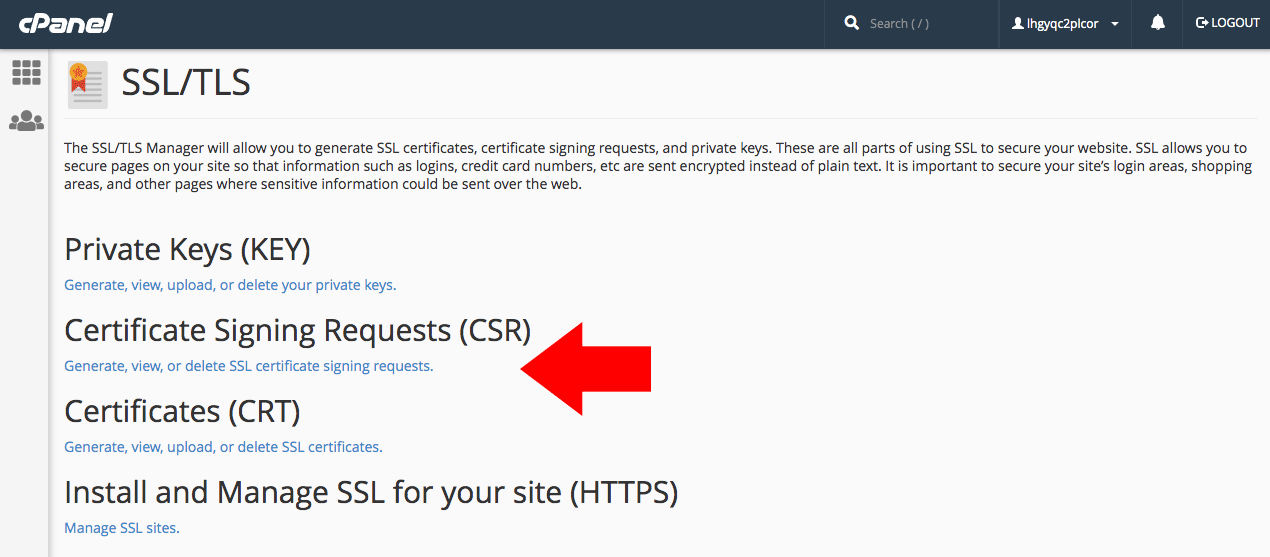
5: In the next page you need to fill in the form to create your CSR. Also have Generate a new 2,048 bit key selected so a Private Key is created along with your CSR. What is a CSR?
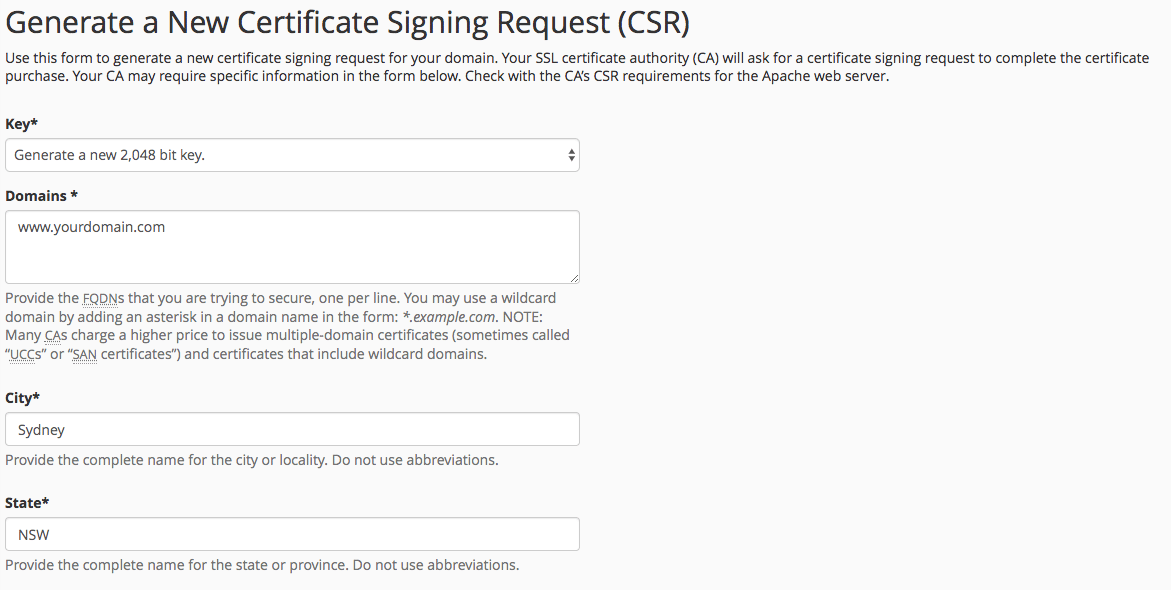
City: Complete name of the city, no abbreviations.
State: Full name of the state.
Country: Choose your country from the dropdown list.
Company: If you are a business; Enter your legal entity name. If you're not a business, any value entered will not be used in your certificate.
Company Division: If you are a business; Write the appropriate division of your company. It is best to use something generic such as "IT".
Email: Enter your email address
Passphrase: It is used to confirm the identity of the individual who requests the certificate. This is not mandatory.
Description: Used for CSR identification purposes only.
After you click the Generate button, you will be presented with your CSR. This along with your Private Key will be saved within your Cpanel, to be used later.
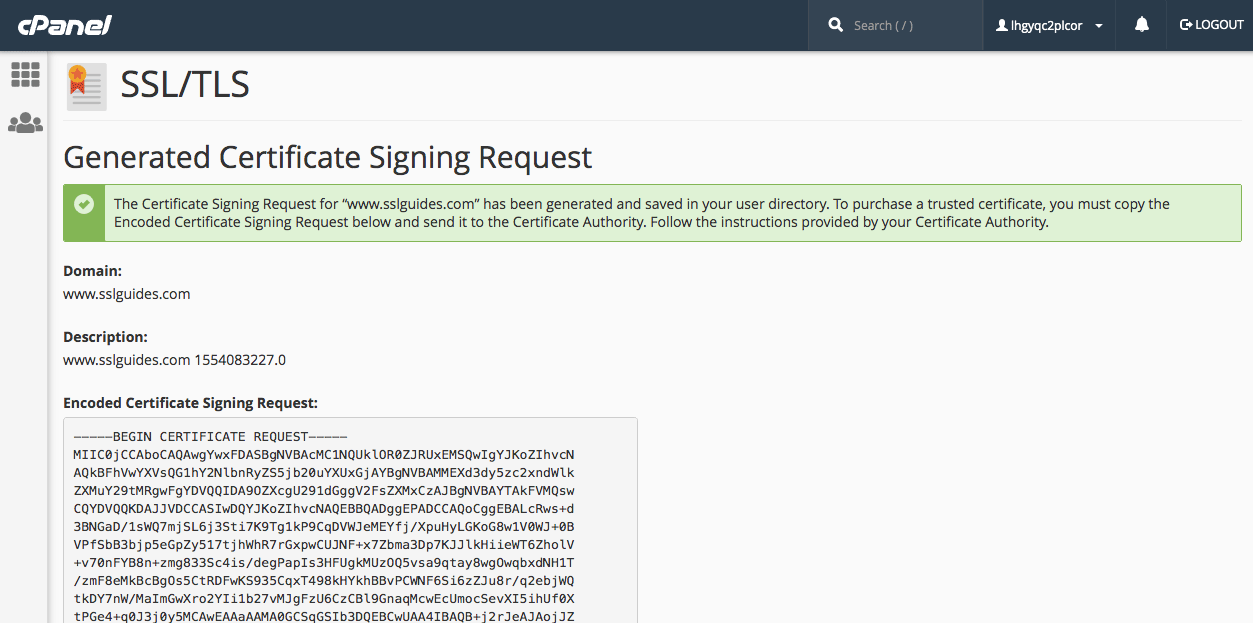
Please keep this window open as you will need to copy your CSR Code to be used shortly.
Step 2. Order and Configure the SSL Certificate
Now we need to order an SSL Certificate. If you visit our SSL Certificates List page, you will have a selection of Certificates you can order. If you have a simple website wanting to secure the one domain, you will be fine to use a Comodo PositiveSSL. If you are a business website you may want to look at using a Business SSL, we recommend a GeoTrust SSL such as the True Business SSL.
If you require any assistance with selecting an SSL Certificate, please feel free to contact our sales team and they will be happy to assist.
1: Order the SSL and complete the checkout.
2: Once you have completed the SSL Certificate Purchase you can begin the configuration process. This can be started by going into your SSLTrust account and managing your recent purchase.
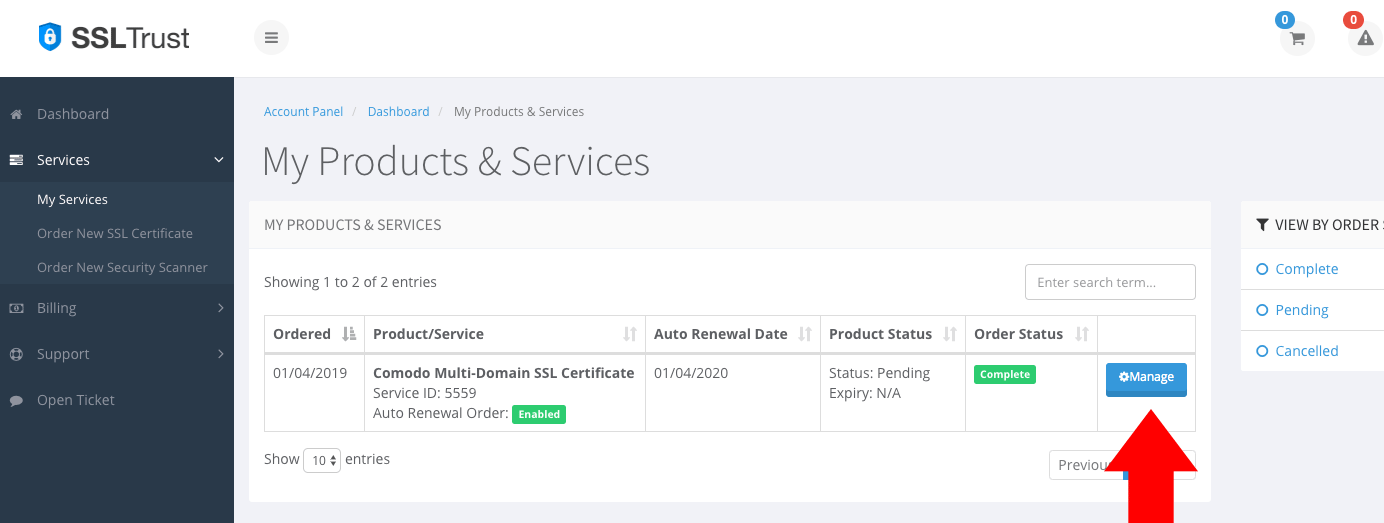
You then will need to click the Submit Configuration button to begin the configuration process.
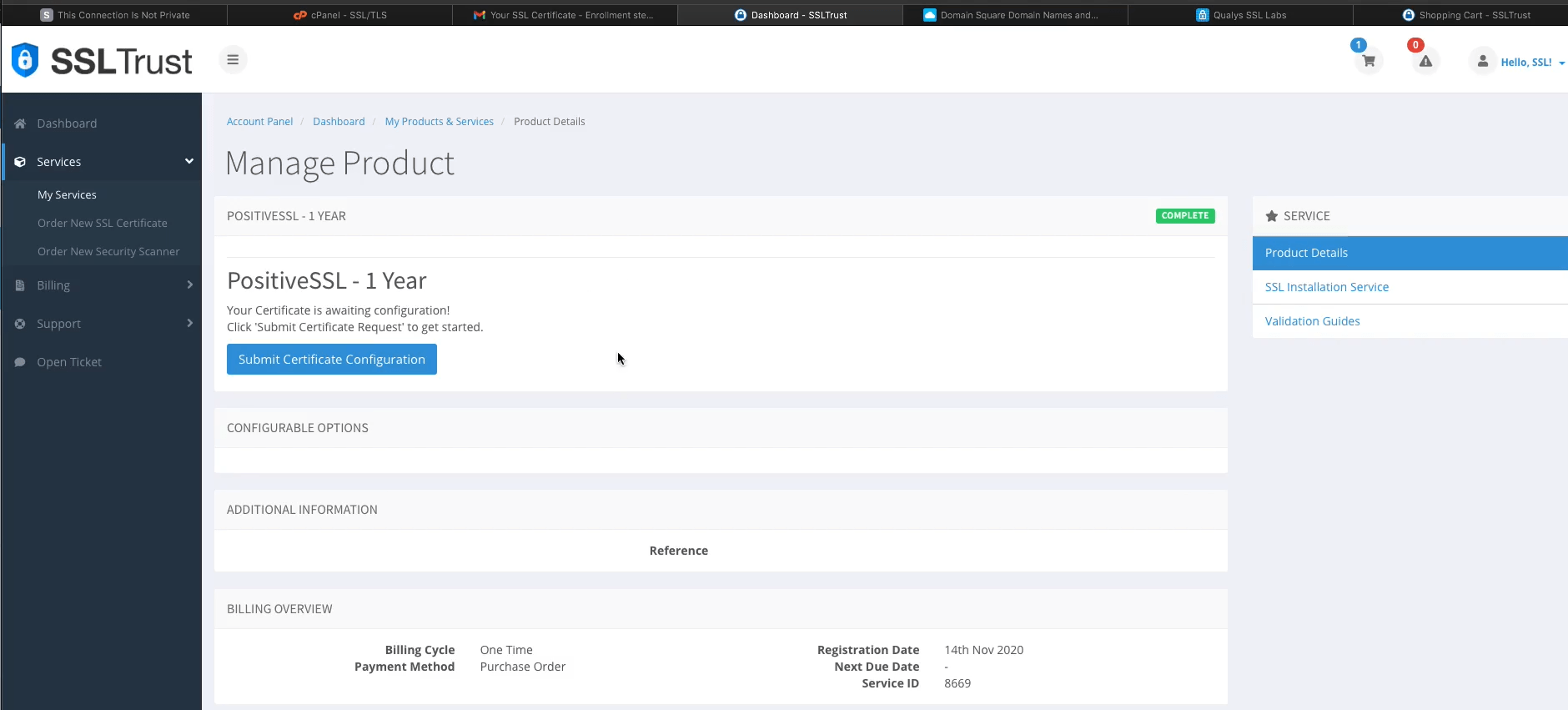
3: You now need to paste in the CSR you generated in your cPanel Web Hosting. This includes the lines:
-----BEGIN CERTIFICATE REQUEST---- -----END CERTIFICATE REQUEST-----
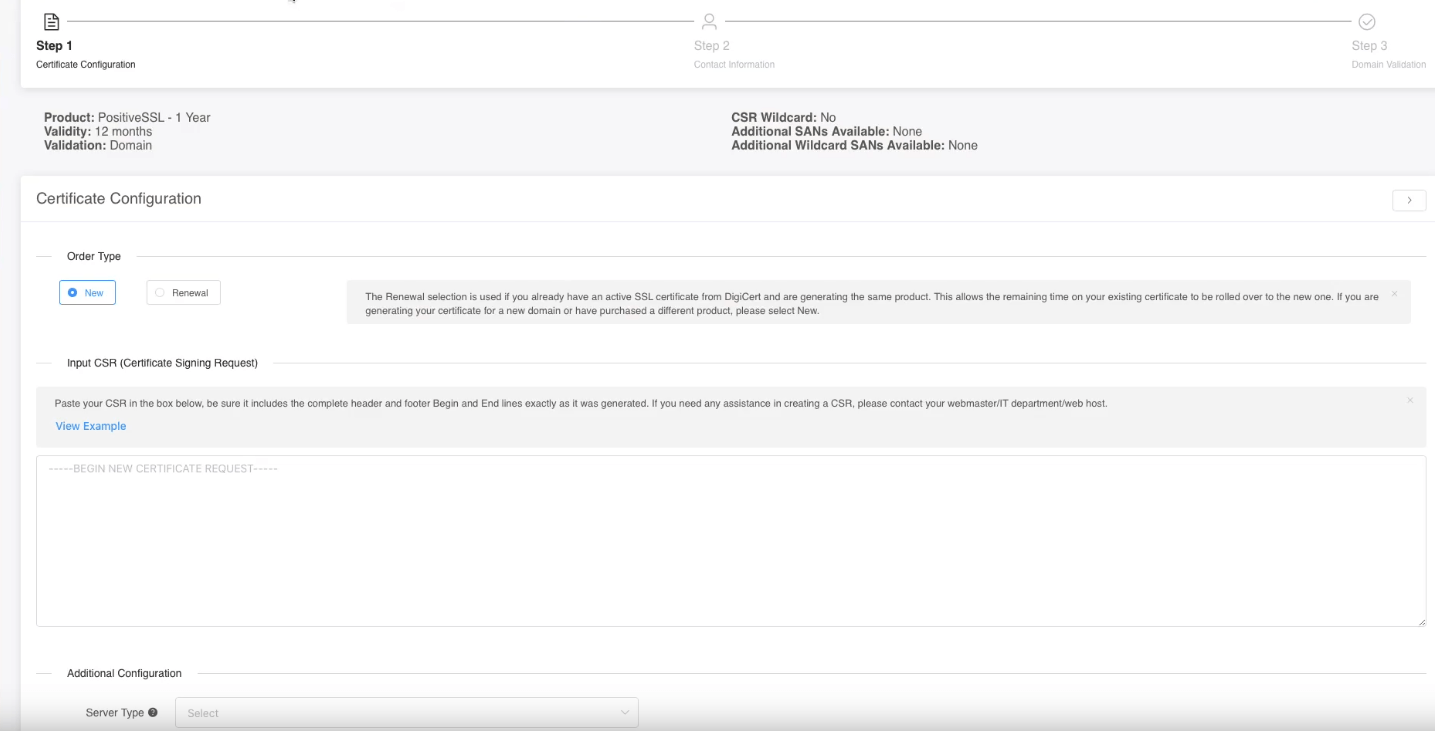
Select cPanel for your Web Server Type.
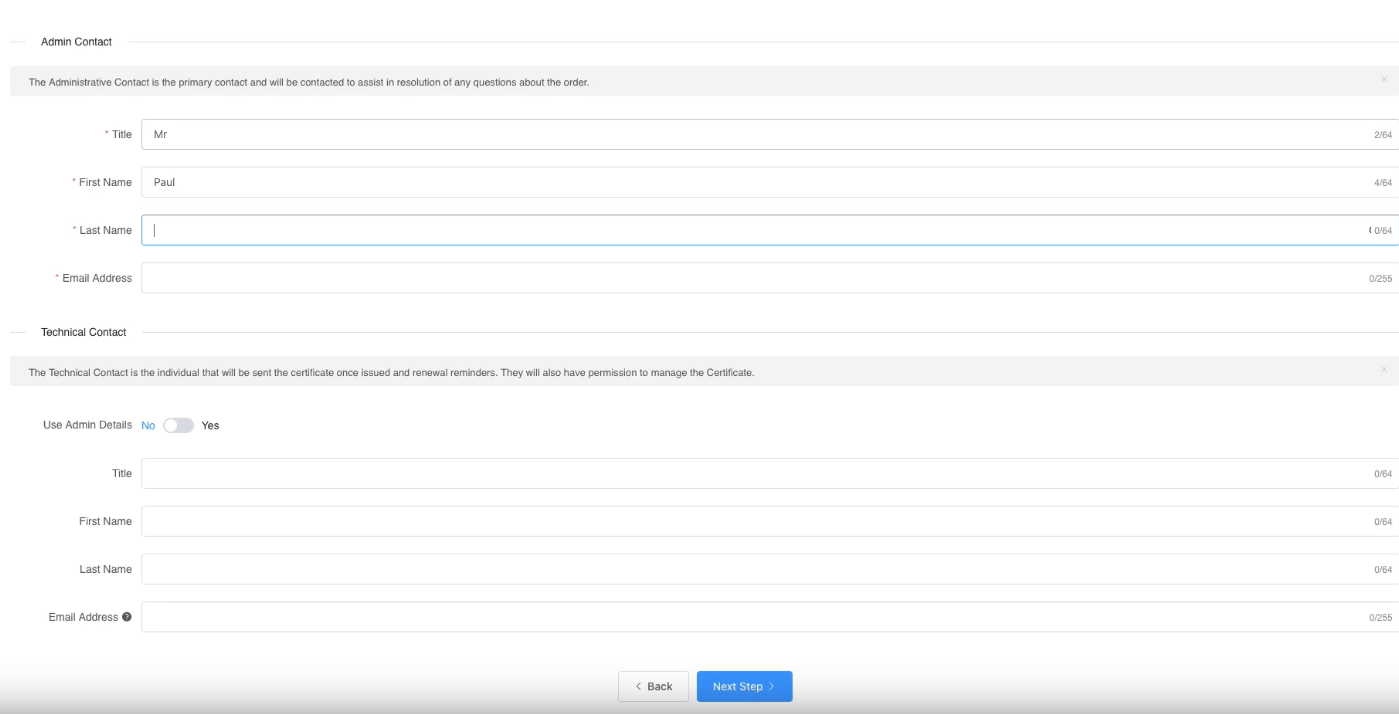
You will need to also enter the Site Administrator Contact Information.
This information is to be of the individual who is responsible to approve and SSL Certificate. If it is a business SSL, it needs to be a contact under the business.
The Technical Contact Information is the details of the individual responsible for the installation and management of the Certificate.
If you have ordered a business SSL, you will also be required to enter your business details. These should be the correct address and phone number and legal entity name. They will be required to be validated by the Certificate Authority, any mistakes will cause delays. More information on Business Validation can be found here.
4: Click Continue to go to the next Step. Here you need to select the Authentication Method to validate your domain name. This is required to prove you own the domain name and have permission to issue an SSL Certificate for the domain.
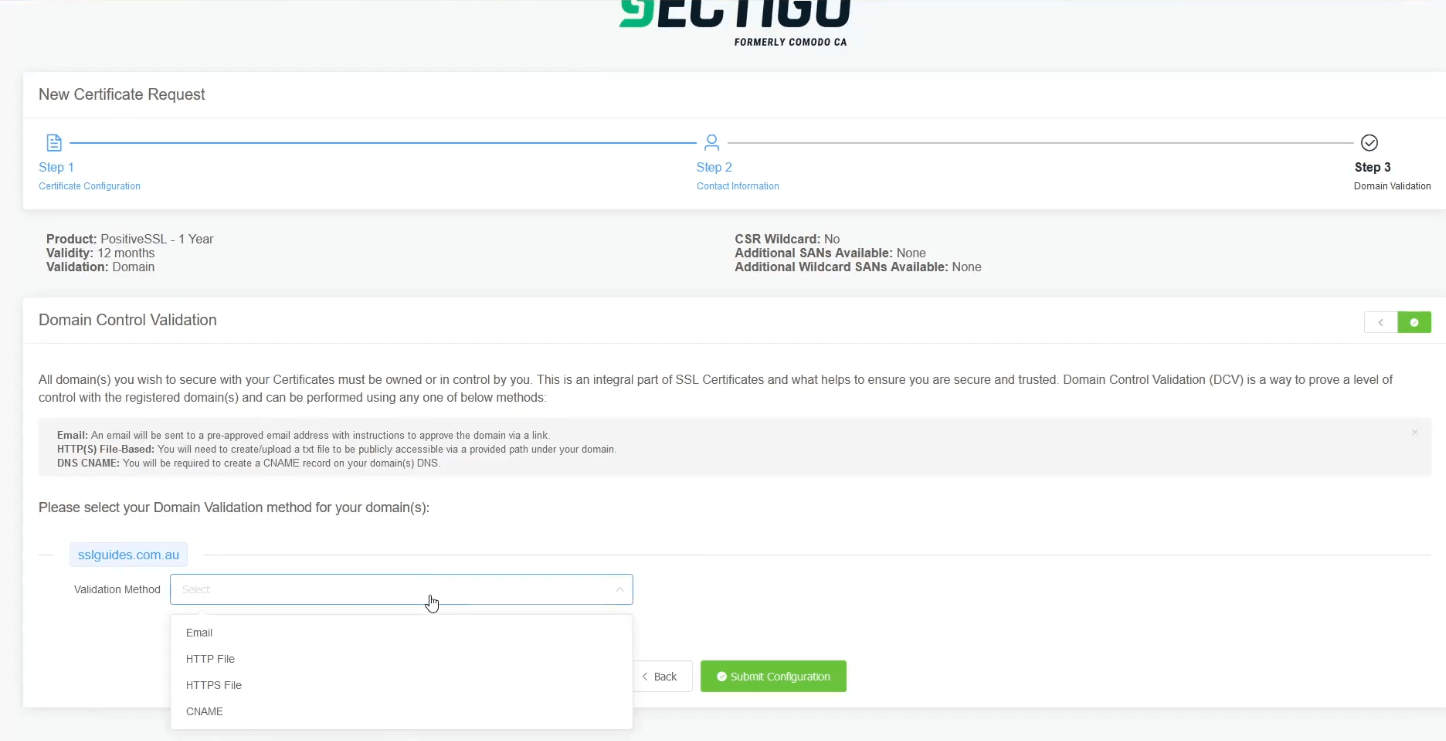
Select the method that will be the easiest for you to use; File-Based Authentication ( HTTP / HTTPS ), CNAME Based Authentication ( DNS ) or Certificate Approver Email.
If you have access to one of the listed emails, this can be the quickest method
Click Continue/Submit to finish the Configuration process.
After you complete the domain validation via your selected method, your SSL will be issued. If you ordered a Business SSL, you will need to wait for the Certificate Authority to complete the Business address and phone validation. If the validation has not progressed, or you have not received your Certificate after some time, please contact our support team so we can check on its status.
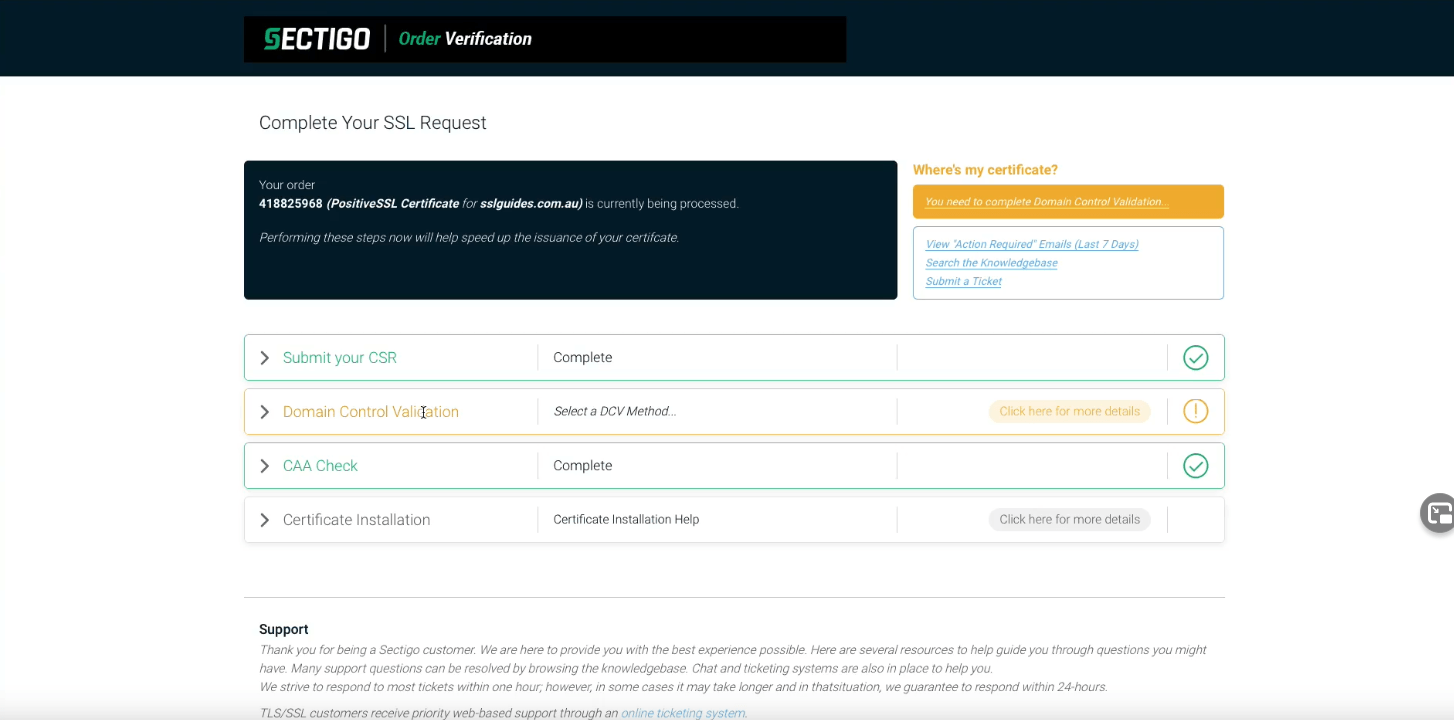
Step 3. Install the SSL Certificate on your A2 Hosting Server via cPanel
When your SSL Certificate has been issued, you will be emailed the Certificate Directly from the Certificate Authority. You can also download it from your SSLTrust Portal. Downloading it from the SSLTrust Portal is a good option as we format the certificate in an easy to use way.
Again; View your certificate management page within SSLTrust

1: Click on the Manage button and collect/download your certificate
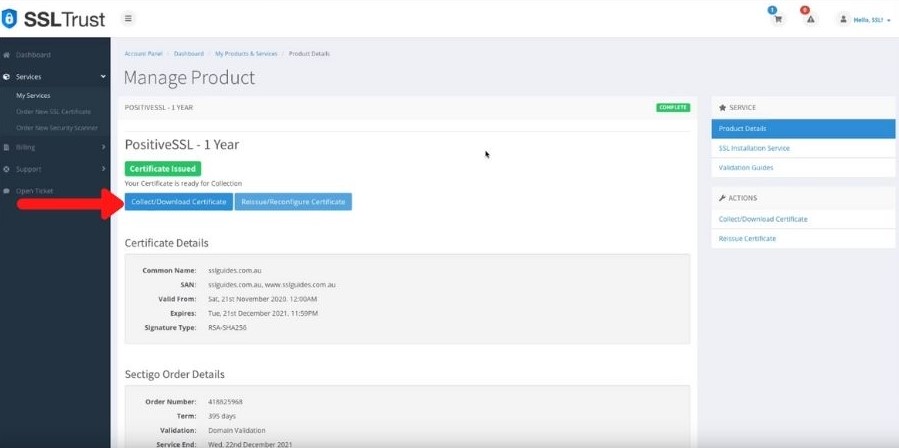
2: Go to the first column and click on copy to clipboard
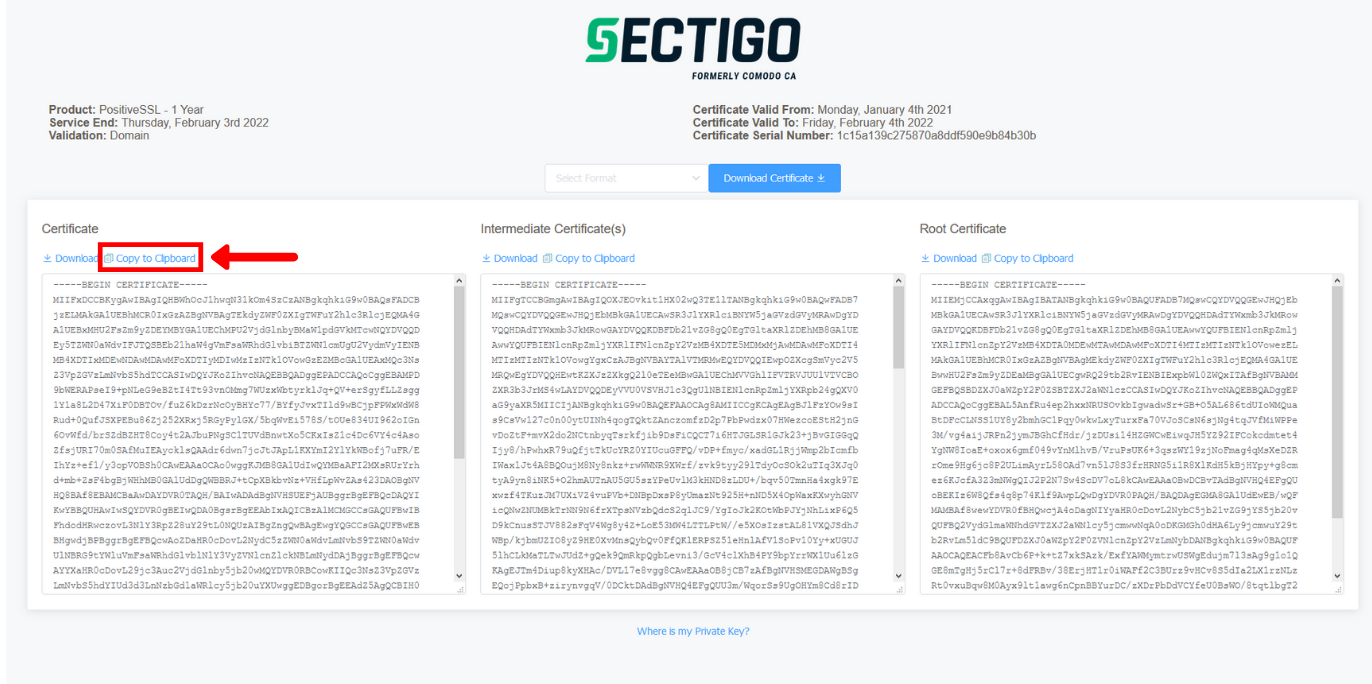
3: Head back over to your A2 Hosting Manager, access cPanel WHM and search for SSL/TLS again

4: Go to Install and Manage SSL Certificates -> Manage SSL Sites
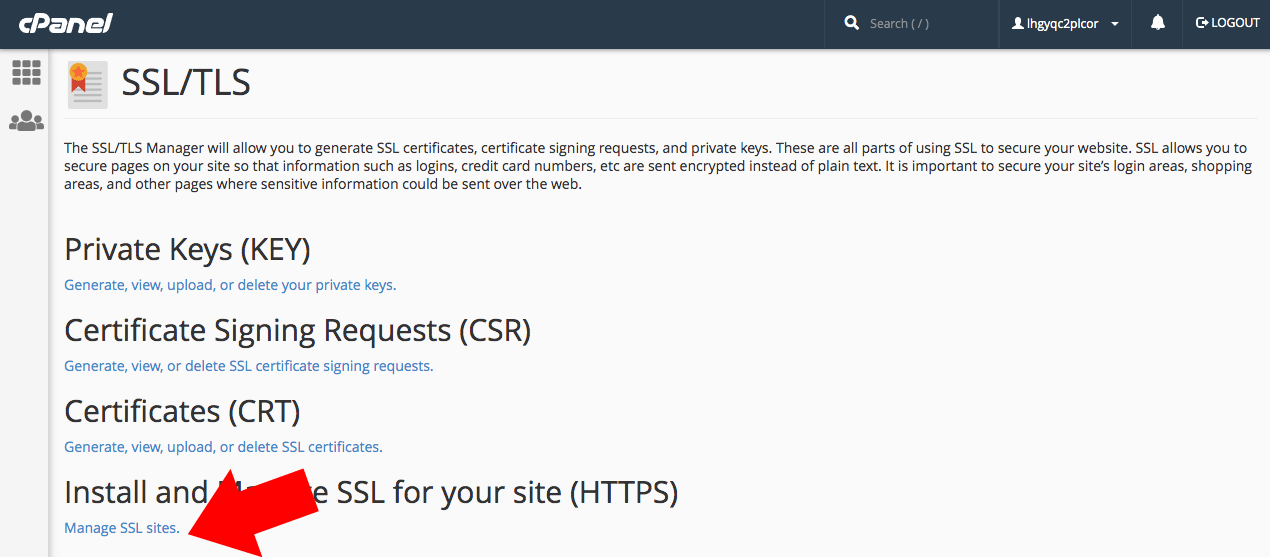
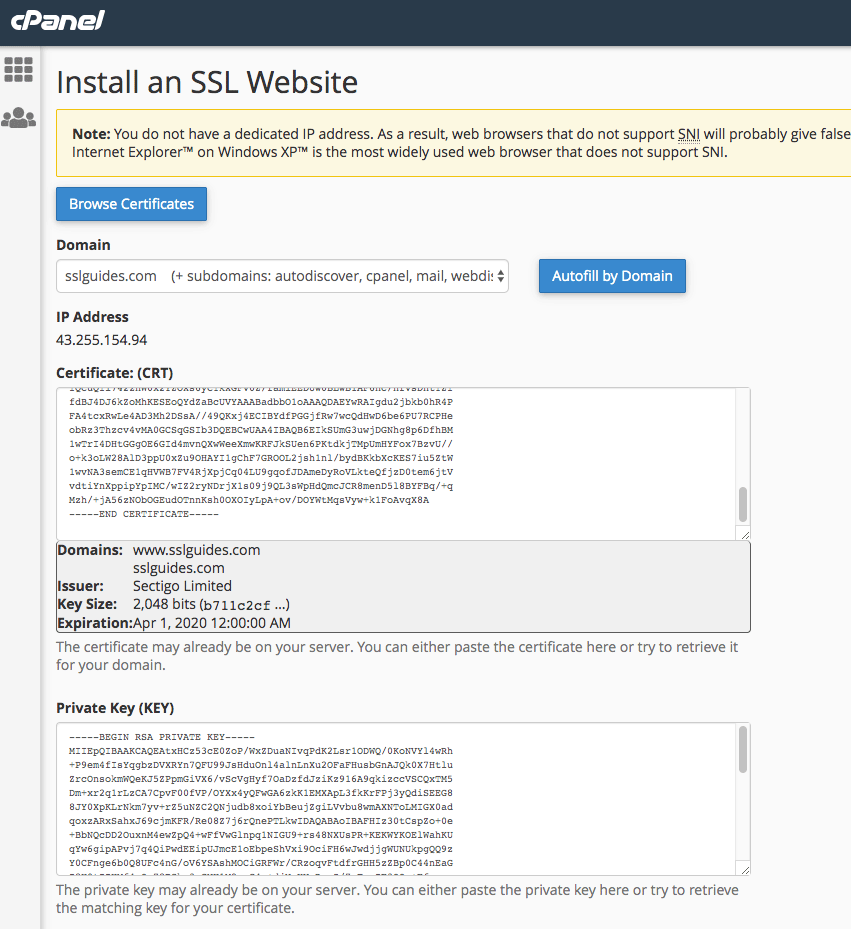
5: Select your domain in the drop down menu.
Paste in your CRT which you had previously copied to your clipboard and click on the Autofill by Certificate button that is shown after you paste in the contents.
If the Private Key and CABundle column do not autofill and remain empty, you will have to manually copy and paste your private key from your SSL Manager in cPanel and CABUNDLE (Intermediate Certificate) which is the second column where you downloaded your certificate.
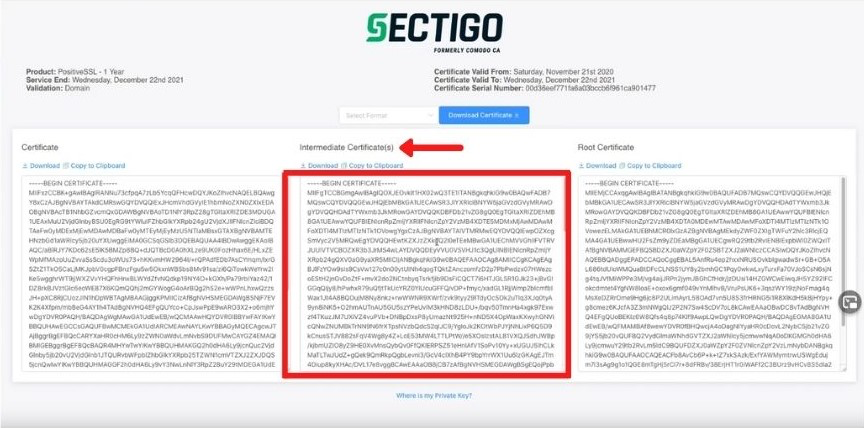
Scroll down and click on Install Certificate

It will now give a success popup, showing the SSL in install on your A2 Hosting Server usingcPanel WHM.
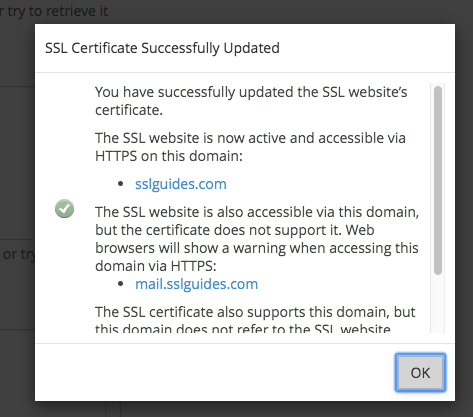
Step 4. Check the SSL is working
It is a good idea to go to your website and see if it works via https://www.yourdomain.com
We also recommend you use this tool to check the install has been completed successfully: www.ssllabs.com/ssltest/
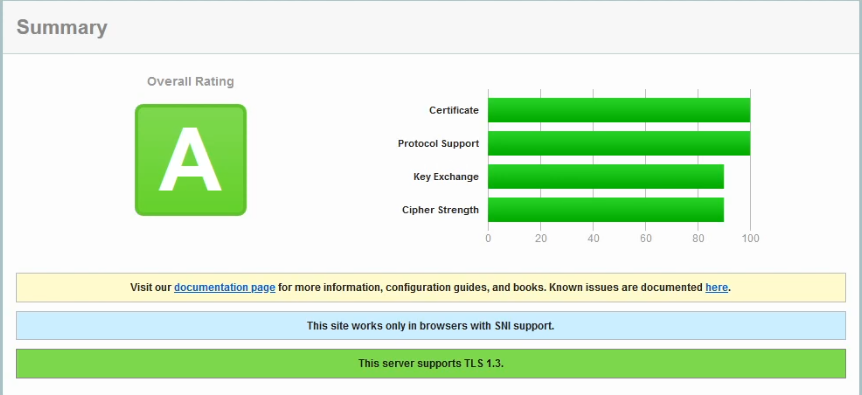
You may need to get your web developer, or update your website yourself, to make sure all files use https:// and all links to your site and within your website use https://
If you require any assistance with your SSL Installation please contact our friendly support team.
